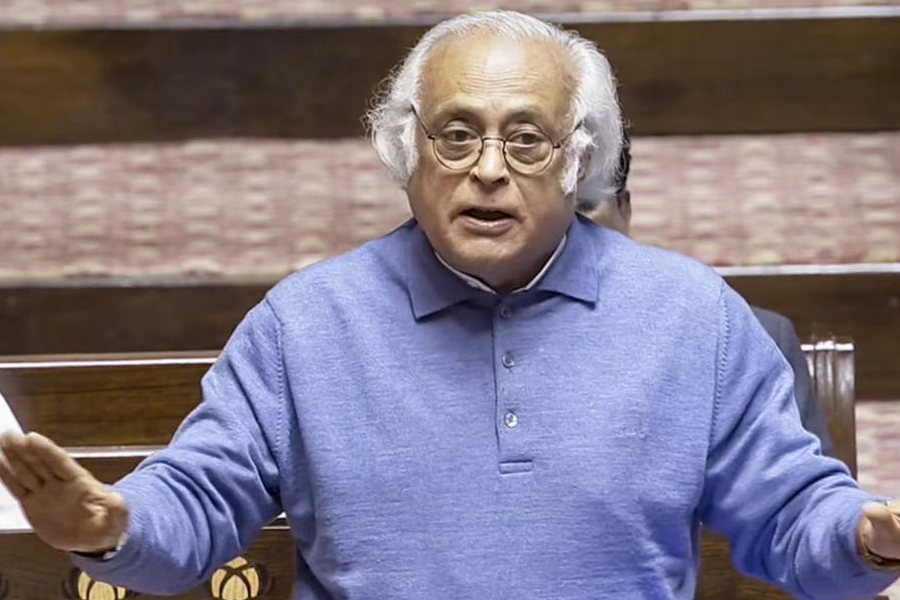 |  |
| Paul Krugman (left) and Jon Stewart (right) | |
A very American row has erupted between the president of the United States of America and his Republican opponents in the Congress. It is characteristic of the US constitution, as of all democratic countries, that the executive of the country cannot impose or raise taxes without the approval of the legislature. Many countries, including the US, follow the British precedent of having two houses of parliament. That creates a problem: suppose one house approves a fiscal measure, and the other does not; can it be implemented or not? Most countries’ constitutions give power to the directly elected house to overrule the other one. But the US was only the second democracy after the United Kingdom. The UK itself was not much of a democracy in the 18th century; the US did not have a great model to go on. So its constitution is rather messy. Its recent fiscal problems, which have involved interminable negotiations between representatives of the executive and the Congress, are due to its peculiar constitution.
Essentially, the US is suffering from deficiency of demand: it has high unemployment and low growth, and it could improve on both if the government spent more or taxed less — that is, if it ran higher fiscal deficits. That requires approval of the Congress, or rather, of the Republicans in it, who have been extremely contrary. They have turned the approval into two, one for the fiscal deficit, and another for the increase in public debt which is implicit in any fiscal deficit, and they are being difficult about both.
If the government runs a deficit, it spends more than it gets in taxes; it has to get the extra money somehow. It can borrow the money — issue bonds to buyers promising to repay the money at a certain future date and pay interest on it meanwhile. Particularly short-term bonds are called bills, on the analogy of bills of exchange. Or it can issue currency, which is a bond that earns no interest and does not have to be repaid. In the US, the authority to borrow rests with the Congress, but the authority to issue coins rests with the secretary of the treasury, as the finance minister is called. It is subject to the rules embodied in Section 5112 of the US Code, under Title 31, Subtitle IV, Chapter 51, Subchapter II.
It is a most detailed piece of legislation. For example, the edge of every coin must be infused with the date of issue and the inscription “E pluribus unum” (the many are one — that is, the nationalities and the states that formed the US are united) which are distinct enough to be read by a blind person (presumably one whose fingers can recognize the alphabet); the secretary can issue half-ounce one-dollar coins of 99.99 per cent gold to commemorate the wife of a president; if the president does not have a spouse, the coin can bear the likeness of Alice Paul, a 19th-century feminist; the secretary can buy gold obtained from a mine in the US and its territories at a price no higher than the world price within a year after the gold was mined; he can issue coins commemorating code talkers who served in the US forces during the world wars; he is not allowed to select a frivolous or inappropriate design for a quarter dollar, and so on.
Section 5112 casually mentions that the secretary of the treasury may issue platinum coins. Paul Krugman recently said in his blog that the president could use this clause to defeat the Republicans’ obstruction. He could mint a platinum coin with a nominal denomination of a trillion dollars, and deposit it with the Federal Reserve, the US’s central bank. He would then have a credit of a trillion dollars in the government’s account, which he could proceed to spend. In essence, he would be printing cash and spending it. That is something our government does casually. It writes cheques, which go to the Reserve Bank of India, its banker, and the RBI honours those cheques whether the government has any credit balance in its account or not. Paul Krugman suggested the same arrangement for the US; but because the Congress comes in the way, he suggested a constitutional dodge. To rub it in, he suggested that the platinum coin should bear the head of John A. Boehner, the Republican speaker of the House of Representatives.
This riled Jon Stewart, one of the television talk show-wallahs. He said, why stop at a trillion dollars? Why not 20 trillion or a quintillion? To which Krugman said Stewart had made a fool of himself. The president could not spend as much as he liked; what he could spend had to be approved by the Congress. It also had to approve what he could borrow. At the moment, he cannot spend what he needs to stimulate the economy because the Congress is not allowing him to borrow. Krugman had suggested a way around that problem: that by depositing the trillion-dollar coin with the Federal Reserve, the president could create a cash balance in the government’s account that he could then spend. Krugman called Stewart lazy and unprofessional. He recommended “knowing jokes”, which would show up so-called experts for not having done their homework; Stewart’s jokes were presumably “not knowing”; that is, based on ignorance. Stewart, in response, said the next day that he was not lazy: he worked 22 minutes every day; and he called the trillion-dollar coin a stupid idea. He did not make any knowing jokes; he just implied that the great economist had been an idiot.
Last time I went to the US, its protectors at the airports had made me take off my shoes every time I wanted to board a plane. I found that a nuisance, so I have not visited the US for many years. But after the spat between Krugman and Stewart, I looked up some of Stewart’s programmes. It is difficult for me to make sense of many jokes of Stewart; humour is culturally specific to a great extent. But I often found his audience burst into a laugh as soon as he made some sound; either it was extremely intelligent, or the laughter was recorded in advance and unleashed within seconds of his opening his mouth. His joke about the dollar was not very funny. But then, he has to make jokes 22 minutes every other day, week after week, year after year. It is not all that difficult once he acquires an audience; it will have got addicted to his jokes. But then he has to retain the audience; otherwise his target rating points (TRPs) would go down, his programme would not attract high advertisement revenue, and the channel would terminate his contract. So he must sound consistently funny to a sufficient number of Americans. And I do not see anything wrong about his making fun of the platinum dollar. After all, the American economic problem is well nigh insoluble, at least for some years; and if one has to live through hell, one might as well do so in as good humour as possible. So instead of complaining about bad jokes, Krugman should make good ones.










